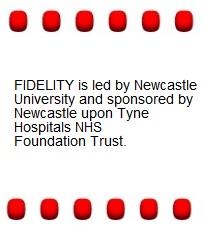Background to the study
Approximately 35% of children with cerebral palsy have speech difficulties because of weakness and slowness of the muscles controlling breathing, the vocal cords, tongue, mouth and jaw. This type of speech problem is called dysarthria. Dysarthria makes speech difficult to understand.
Improving speech has been identified as a priority by both people with cerebral palsy and their families.
The therapy used in the FIDELITY study was developed by Dr Lindsay Pennington, Professor Nick Miller and research speech and language therapist Sheila Robson in 2007. The therapy focusses on controlling breathing for speech, keeping the voice at a loud and steady level and slowing the rate of speech to increase how easy it is to be understood. It uses principles of motor learning, such as giving lots of practice and reducing feedback when children can speak at a steady volume, to help children learn skills quickly and retain them. Two previous studies using this therapy have already taken place - one with older children (aged 11-17) in 2010 and one with younger children (aged 5-11) in 2013. The therapy sessions took place at home or school for 6 weeks and the results showed a 12-15% improvement in the participants' intelligibility.
FIDELITY aims to build on these previous studies by investigating whether it is possible to provide this therapy via the internet as opposed to face to face.
Results from the previous studies are available below:

